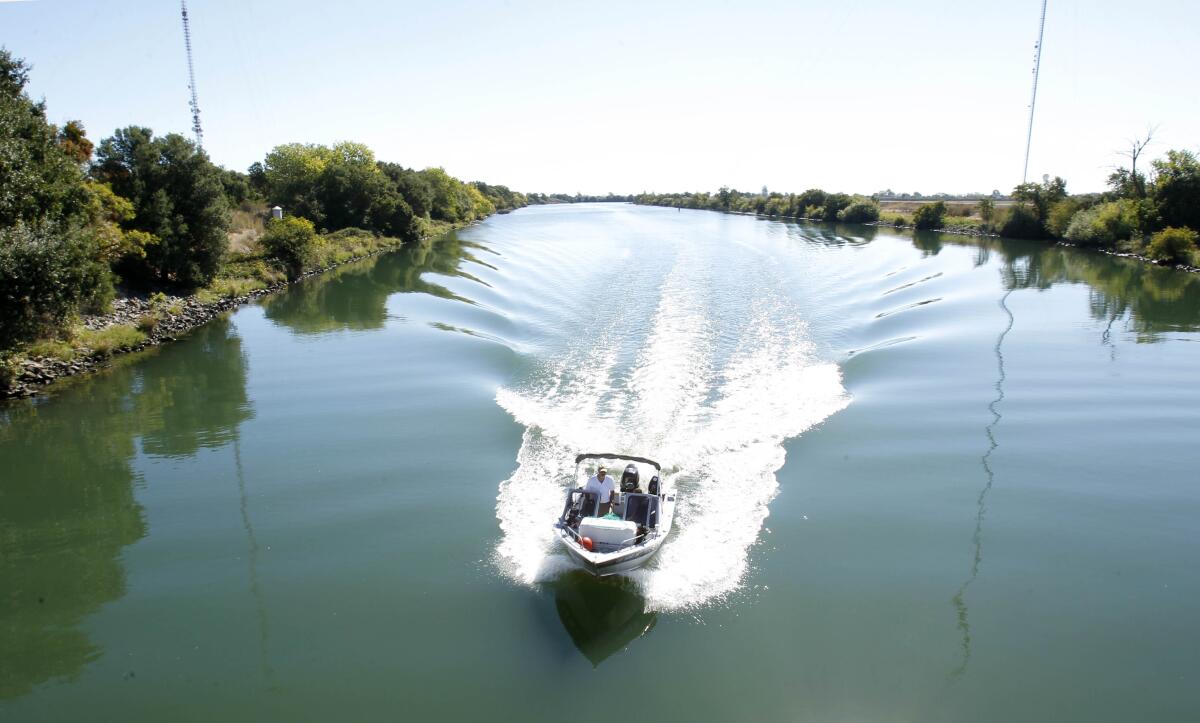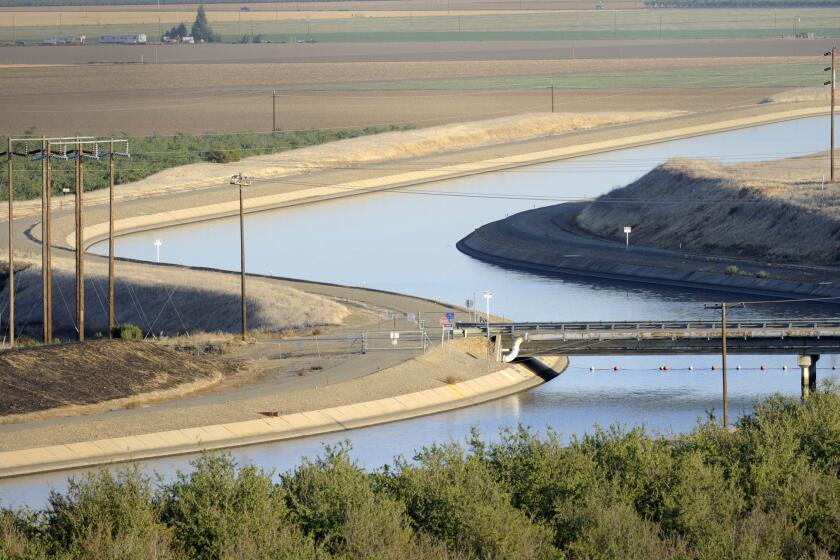The state’s new delta water rules don’t end conflict with Washington

When the Trump administration rolled back endangered species protections in the Bay Area delta that serves as the hub of California’s water-supply system, the state decided to go its own way.
It sued the federal government and also set about drafting its own delta rules under the California Endangered Species Act.
The new rules, released at the end of March, were immediately greeted by threats of lawsuits and — depending on who was talking — complaints that the regulations were too weak or too strong.
“I think we have a big mess on our hands now,” said Jeffrey Kightlinger, general manager of the Metropolitan Water District of Southern California, which supplies delta water to the urban Southland.
The rules take the form of a state Fish and Wildlife Department permit that will govern State Water Project deliveries from the Sacramento-San Joaquin Delta, a key water source for much of California.
But the permit does not explicitly control operations of the U.S. Bureau of Reclamation’s Central Valley Project, which exports delta water to San Joaquin Valley farms.
That means the delta’s two big government pumping operations will likely adhere to different environmental standards — possibly allowing the federal project to boost deliveries at the expense of the state project.
State officials said they are hoping to resolve the conflict through continuing talks with federal water managers.
“I think it’s possible to sort it out,” said state fish and wildlife director Chuck Bonham.
The Interior Department on Friday awarded Westlands Water District, a former client of Secretary David Bernhardt, a permanent entitlement to roughly twice as much water as the city of Los Angeles uses in a year.
In the meantime, Kightlinger and other State Water Project customers will be talking to their lawyers.
“The state has shifted a lot of the burdens to us that we don’t think are appropriate,” said Kightlinger, whose agency had urged the state to go along with the federal rollback, set in motion by a Trump directive.
The relaxation of federal fish protections promised to send more water to Southern California. But it particularly benefited the Westlands Water District, a sprawling San Joaquin Valley irrigation agency that was a client of Interior Sec. David Bernhardt when he worked as a Washington lawyer-lobbyist.
State officials protested the federal action, saying it went too far and was not scientifically justified.
But Gov. Gavin Newsom has also been sensitive to water users’ complaints that delta fish protections have been too onerous.
The new state permit is “not as bad as the Trump extinction plan,” said Doug Obegi, an attorney with the Natural Resources Defense Council. “But it weakens existing protections at a time when we need more protections” for imperiled native fish.
He added that conservation groups, which have sued to block the Trump rollback, will also likely sue to overturn the state permit.
President Trump visited Bakersfield on Wednesday, promising to deliver more water to farmers and less for the environment. Gov. Newsom announced California will challenge the decision in court.
Formed by the confluence of the state’s two largest rivers, the delta is a perpetual environmental battle ground.
Little is left of wetland and flood plain habitat that was drained and turned into levee-ringed farm islands more than a century ago. The massive water export operations that fill river-sized aqueducts are so powerful that they reverse natural channel flows in the delta’s southern reaches.
Invasive aquatic species are more at home in the delta’s highly altered environment than the once abundant delta smelt and Chinook salmon.
State biologists have repeatedly said that struggling delta ecosystems need more fresh water flowing into the delta and out to sea. The staff of the State Water Resources Control Board previously said the proposed state rules would reduce delta outflows at critical times of the year.
Karla Nemeth, director of the Department of Water Resources, said on average, the State Water Project’s delta exports would not increase under the new permit.
The regulations also call for certain outflows to boost the survival of longfin smelt and juvenile delta smelt, Bonham said.
“I’m confident that we have addressed issues raised by the board,” Nemeth said.









